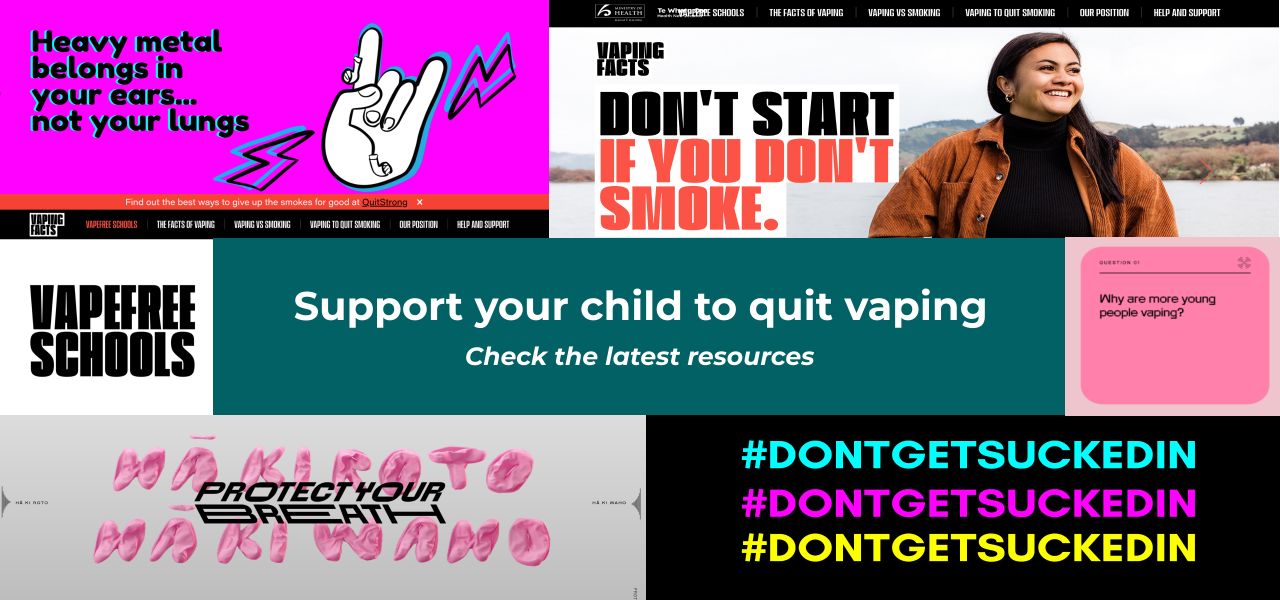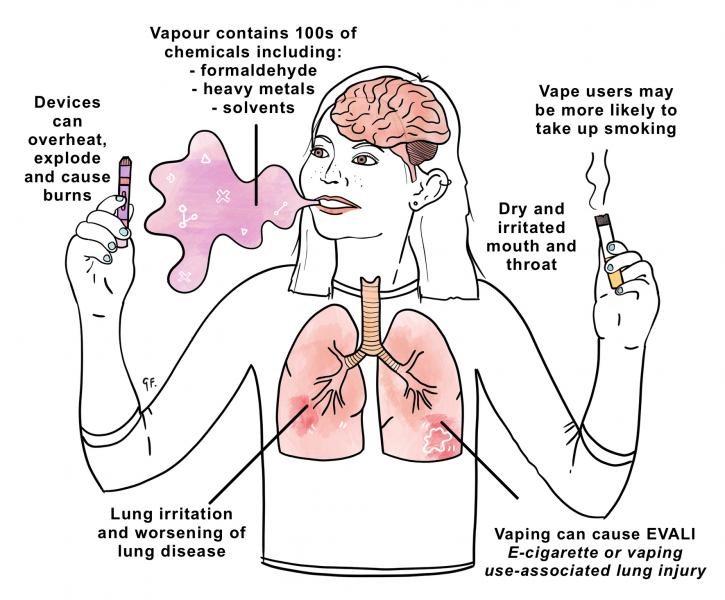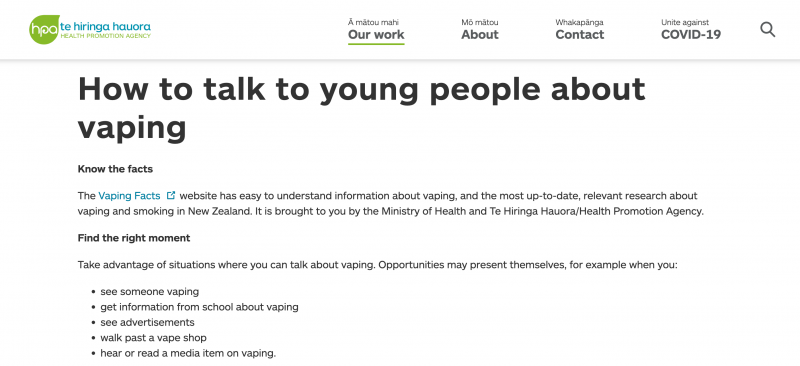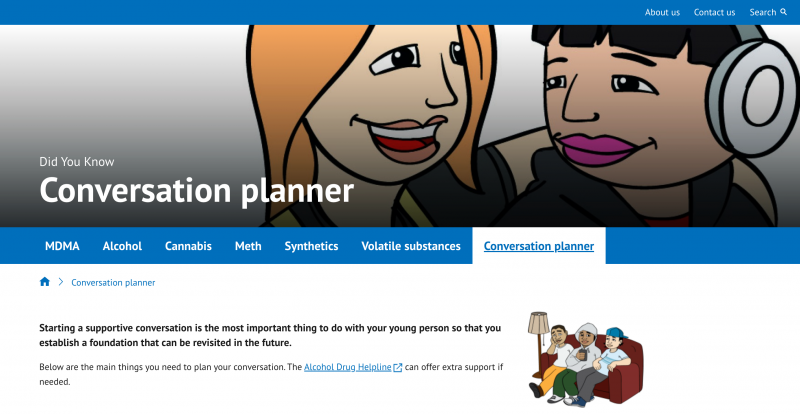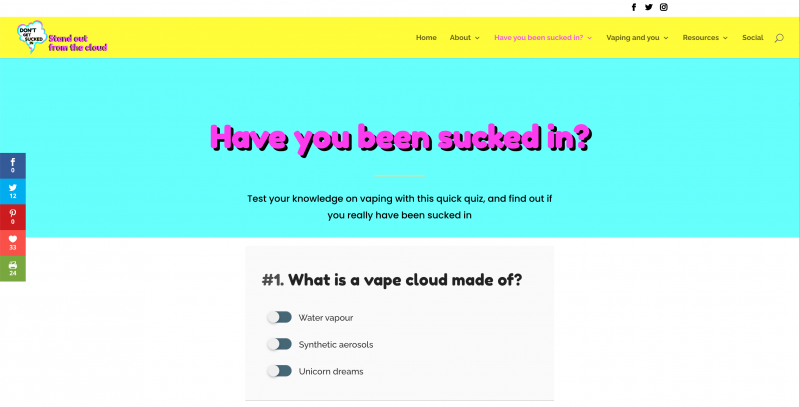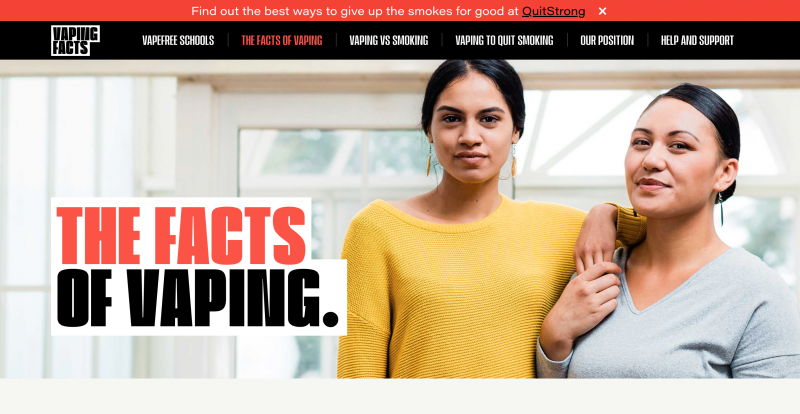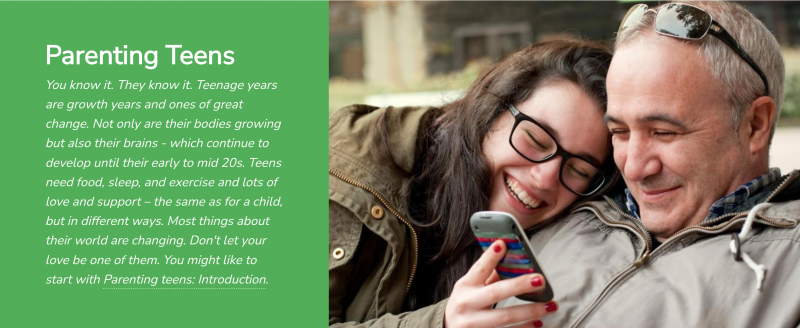Vaping & Young People
Vaping & Young People
Vaping rates in rangatahi (young people) continue to increase in Aotearoa. Vaping is harmful to tamariki (children) and rangatahi - it can have an impact on their health and wellbeing.
Key points about young people and vaping
- vaping is likely less harmful than smoking cigarettes but it's long-term effects are not known
- nicotine can change the way the teenage brain develops and works
- experimentation with vaping often begins at a young age
- vaping is bad for a young person's health
- the best thing for your young person's health is to be smoke-free and vape-free
- vaping can be helpful for adults who wish to quit smoking
What is vaping?
A 'vape' or an 'e-cigarette' is a device that heats vape liquid to create a vapour that is inhaled and exhaled. Vape liquid often contains nicotine as well as chemicals and flavours. You can also get vape liquid that is nicotine free.
What do vape devices look like?
A vape device can come in many different shapes and forms. Some look like a traditional cigarette, pipe or cigar. They can look like everyday items such as pens, stationery or memory sticks (USBs). Some are even disguised within clothing or as medical devices.
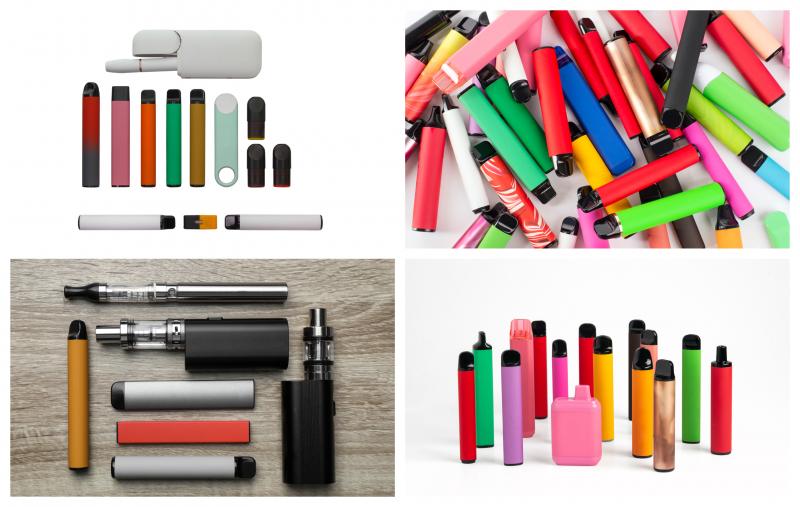
Vaping in young people
The number of rangatahi in Aotearoa who vape continues to rise.
Action for Smokefree 2025 (ASH) Year 10 Snapshop surveys 20,000 to 30,000 New Zealand students every year on their smoking and vaping behaviour and attitudes. The 2022 results report that 10.1% of year 10 students vape daily. This has increased from 9.6% in 2021.
See the full ASH Year 10 Snapshot Topline Survey Results from 2022.
Is vaping harming my young person?
Vaping has short-term and long-term side effects. Researchers and health professionals don't know about all the side effects yet. Vaping is harmful to tamariki and rangatahi.
Young people can become dependent on nicotine. Nicotine is harmful and can cause unpleasant withdrawal symptoms. Being addicted to vaping can affect a young person's relationships and their behaviours at school and work.
What are the harmful effects of nicotine?
Not all vape liquids contain nicotine, but many do, and nicotine is very addictive.
Some of the harmful effects of nicotine:
- being addicted to nicotine makes it very hard to stop using it
- someone withdrawing from nicotine can experience lots of unpleasant symptoms
- nicotine can change the way the brain develops and works in young people
- there is an association between nicotine use and depression and anxiety
- a young person's vaping behaviours may negatively affect school, work and relationships
- maintaining a vaping habit is expensive
- nicotine can cause death at high doses
The image below shows some of the negative health impacts of nicotine.
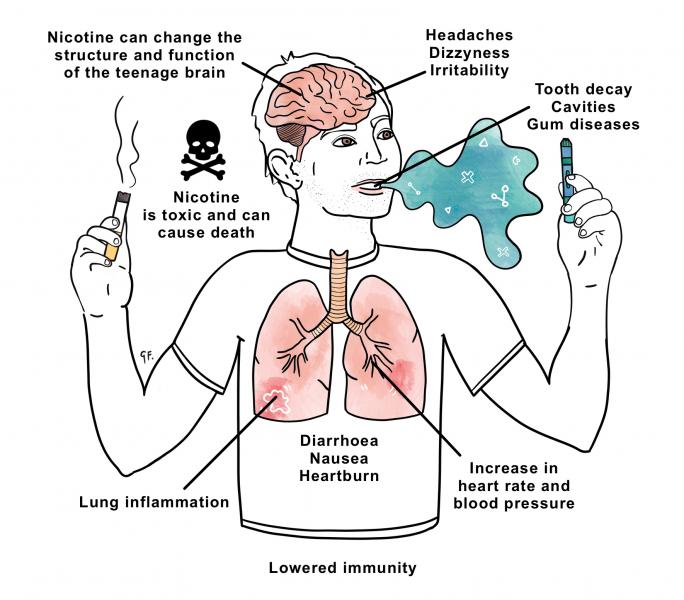
Is my young person addicted to vaping?
Young people who are withdrawing from nicotine may show the following:
- vaping as soon as they wake up or overnight
- cravings all the time
- irritability
- trouble sleeping
- they can't function if they don't use their vape
- they can't stop vaping despite wanting to
If your young person is addicted to vaping, their vaping behaviours may affect school, work and relationships
If you think your young person is having nicotine withdrawal, talk to a health professional about some options to quit.
What are the harmful effects of vaping?
Vaping has only been around for about 15 years, and in that time, vape devices have changed a lot. Researchers don't know about all the side effects yet.
Short-term effects
Vaping may cause nausea, headache and cough and can irritate the mouth and throat.
Vape devices can overheat and explode causing burns.
Long-term effects
Long-term effects include inflammation deep within the lungs. Vaping can increase your blood pressure and heart rate. It can make asthma symptoms worse, especially in rangatahi.
Vaping has been linked to a severe lung injury called e-cigarette or vaping product use-associated lung injury (EVALI). People with this lung injury have had to go to the hospital. In extreme cases, people have died. This lung injury has most commonly been linked to vapes that contain cannabis or vitamin E oil.
The image below shows some of the negative health impacts of vaping.
How can I support my young person to quit vaping?
Start a conversation
There are lots of ways to help your young person quit vaping, and starting a conversation is important. Listen to them with patience.
Ask your young person why they like vaping and help them to think of other ways to meet this need. Talk about what they don't like about vaping and help them identify reasons for stopping.
Talk about the benefits of being vape-free such as saving money.
Check out KidsHealth's section on communicating with teens
Be a good role model
If you are a smoker or vaper, talk to your child about your experiences and how hard it is to quit. Consider getting your own support to stop.
If you want to give up smoking or vaping:
- call the free Quitline Me Mutu on 0800 778 778 or text 4006
- ask a health professional for support
Look at the facts
Look at some online resources with your child. There is a lot of false information on the internet, so look at websites and information you can trust.
Check out the Don't Get Sucked In website - it encourages youth not to start vaping in the first place. It has a quiz you can work through with your child to check how much they know.
Talk about peer-pressure
Young people can feel pressure because of the behaviours of people around them. Remind your child they can say no to things they don't want to do. Help them to feel confident to make their own choices.
Get help
Share your concerns with your child. If you think your child has a nicotine addiction, get help to support them to quit. Talk to a health professional.
You could also speak to your child's teacher or school about how they are addressing vaping among their students.
What are the laws around vaping in Aotearoa?
There is a Smokefree Environments and Regulated Products (Vaping) Amendment Act 2020. It prevents the marketing and sale of vaping products to young people while allowing access to adults who want to quit smoking.
The Act requires all school and school grounds to be smoke-free and vape-free.
Even with the laws about vape use in Aotearoa, some young people can get vapes and vape equipment.
The law prohibits the sale or supply of any vaping product to anyone under the age of 18.
More resources for parents and rangatahi on vaping
Take a look at the Protect Your Breath social media project. It was created by youth together with schools and health experts. The project encourages young people to have confidence in their decision-making.
Find out more facts about youth vaping from the Asthma and Respiratory Foundation NZ.
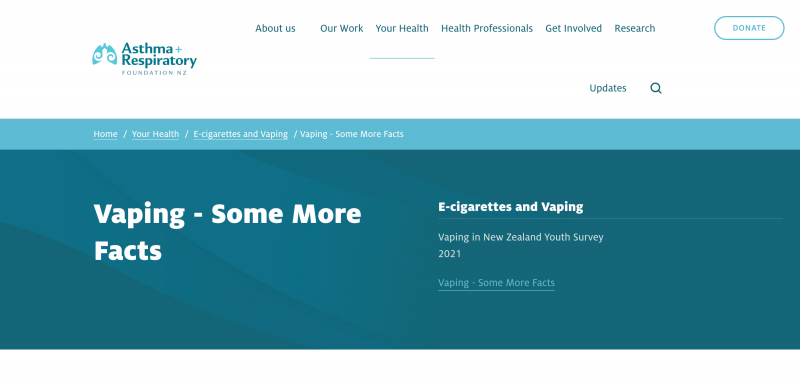
See more KidsHealth content on parenting teens
This page last reviewed 14 June 2023.
Do you have any feedback for KidsHealth?
If you have any feedback about the KidsHealth website, or have a suggestion for new content, please get in touch with us.
Email us now